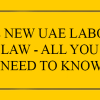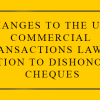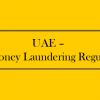Hello Everyone
I am Shoeb. I have been practicing law in the UAE for the last 12 years. Today’s video is specifically for viewers who understand Hindi and Urdu language.
This video and post are only for knowledge purposes only and advice should be taken from a qualified legal advisor in Dubai for any specific matter.
Most of the residents of the UAE generally opt for a credit card or have taken some sort of loan from a bank or a financial institution.
Taking a loan is very easy in UAE however the repayment sometimes gets difficult. This is due to the nature of the market we live in. In this situation, I get many queries asking the remedies in such a situation.
Let us understand what goes beyond the scene when you take any credit facilities from the banks or the financial institutions.
While granting any credit facilities to the individuals, the bank or the financial institution needs to follow the guidelines laid down by the Central Bank of UAE.
This is provided in Article 12 of Regulation No. 29 of 2011 regarding bank loans and services offered to individual customers which states the conditions for the opening of accounts, providing credit cards and granting loans and bank facilities.
Let’s now see what It says,”
a) Conditions for opening of accounts of all types together with conditions for obtaining credit cards shall be included in a standard agreement, which must be drafted in both Arabic and English and written in an easily readable font in accordance with draft provided and approved by the Emirates Banks Association.
b) Conditions for granting personal loans, car loans, overdraft facilities and facilities for covering unpaid credit card balances must be included in standard applications, drafted in both Arabic and English and written in an easily readable font, and in accordance with the draft provided and approved by the Emirates Bank Association.”
Moreover, the Central Bank of the UAE through its notice No. 3692/2012 has provided a format of general terms and conditions which must be incorporated in agreements for personal loans, overdrafts, and auto loans which has been approved by the Emirates Banks Association.
The said formats are in accordance with Article 12 (a) and (b) of Regulation No. 29 of 2011 related to regulations regarding bank loans and services offered to individual customers.
The UAE Central’s bank approved format of the personal loan agreement in its Article 4(4) states that:
“The loan elapses and all the installments, interests and any other fees and expenses become due and payable immediately without having to give any notification or any court ruling and without prejudice to any other rights of the bank according to this agreement or in accordance with the law in the event the borrower failed to pay three consecutive installments or six nonconsecutive installments of the monthly installments without the approval of the bank.”
It is necessary for all individuals to sign a Personal Loan Agreement and accept the above terms and conditions while availing personal loan and credit card facilities with the bank or the financial institution.
Consequently, you will be held liable for the breach of the same, if you have defaulted in repayment of a personal loan or credit card outstanding continuously for three installments or six non-consecutive installments to the lending bank or the financial institution and as a result, your credit facilities can be recalled back and the banks or financial institutions will ask.
So, what must one do in this situation?
The best way to deal with this is to go and talk to your banker and make him aware of the circumstances you are going through. Make him a kind request to assist and help you in this distressing financial situation. It is generally seen that in these kinds of issues the bankers take a sympathetic view and are keen to find a solution.
Both you and the banker can mutually agree at one of the following:
- Reduce the interest rate
- Increase the tenure of the repayment.
- Stop the calculation of interest for some time.
Either of the solutions can be worked out. But you must understand that none of these is your legal right; it is just a matter of negotiation between you and your banker.
Now let’s have a look at what is your legal position in this regard if the negotiation fails.
So now just think that when you took the credit card or any loan you gave a signed blank cheque which the banker will now deposit and if for any reason your cheque gets dishonored then the banker is all within his rights to file a criminal case and get a travel ban imposed on you.
Once the travel ban is imposed, you cannot leave the country and if you are out of the country you will be arrested at the airport on your return. In a case where your banker is in Dubai and has filed a criminal case, the government of Dubai has issued a local order which has a provision to pay some fine and get the travel ban removed. The amount of fine depends upon the amount of your cheque. But the amount of the cheque should not exceed 200,000 dirhams. If the amount of the cheque is more than 200,000 dirhams then this local order is not applicable.
The next question which arises is how much is the fine amount. The fine amount is between 2000 to 10000 dirhams, increasing gradually according to the cheque amount.
The payment of a fine does not mean that now you are no more liable to pay back the loan. The liability remains the same. This time the banker will file a civil case on you because already he has filed the criminal case for which you have paid the fine. He will take a payment order from the court against you and in case you are unable to pay, again a travel ban will be imposed on you.
I hope this video might have given you some clarity regarding your debt payment. If you need any more clarifications please ask your query in the comment section. And if you liked the video please like, share, and subscribe. For more information, visit our website online at https://www.shoebsaher.com/
- Tags:
- Credit-Card
- UAE Law






